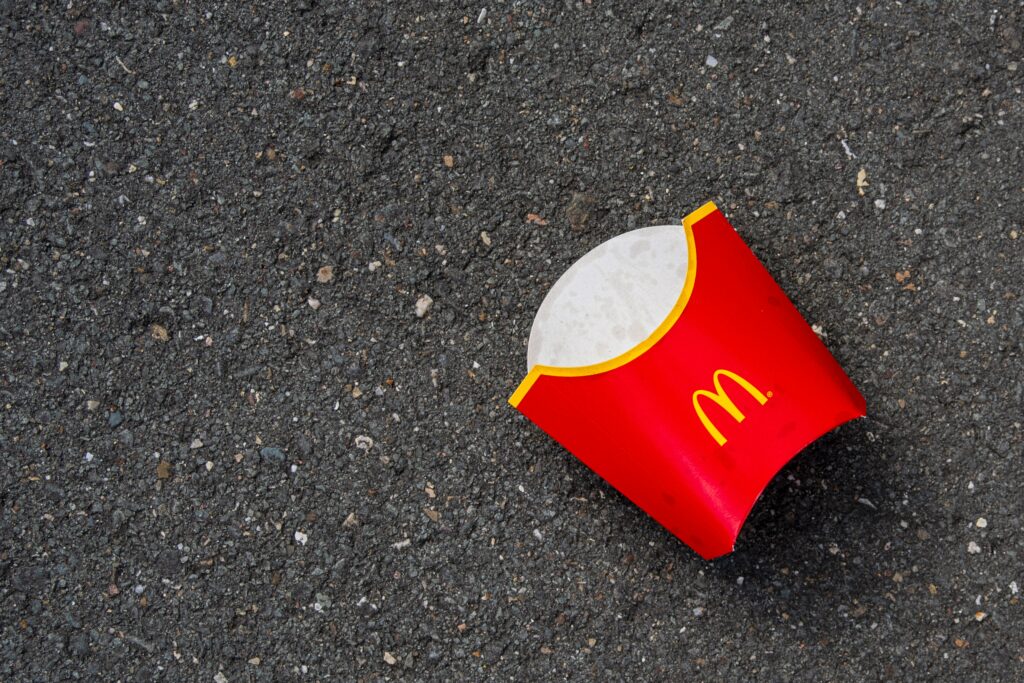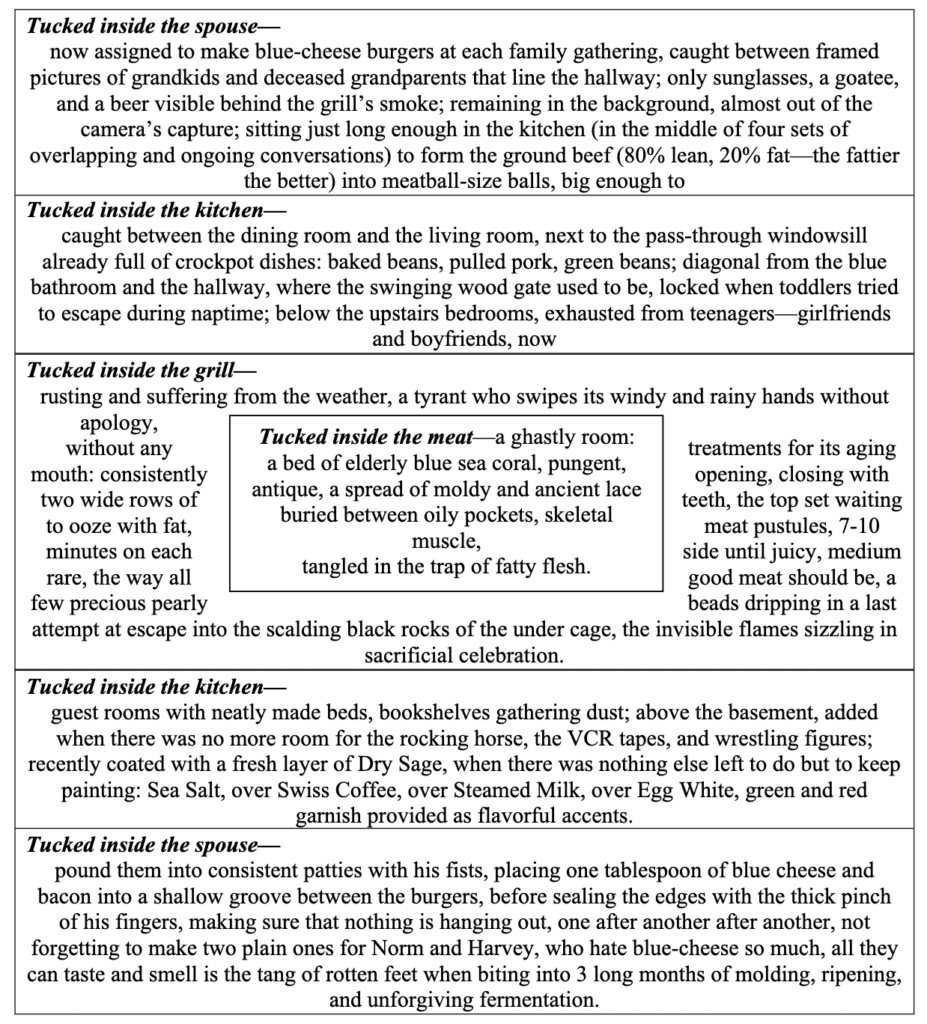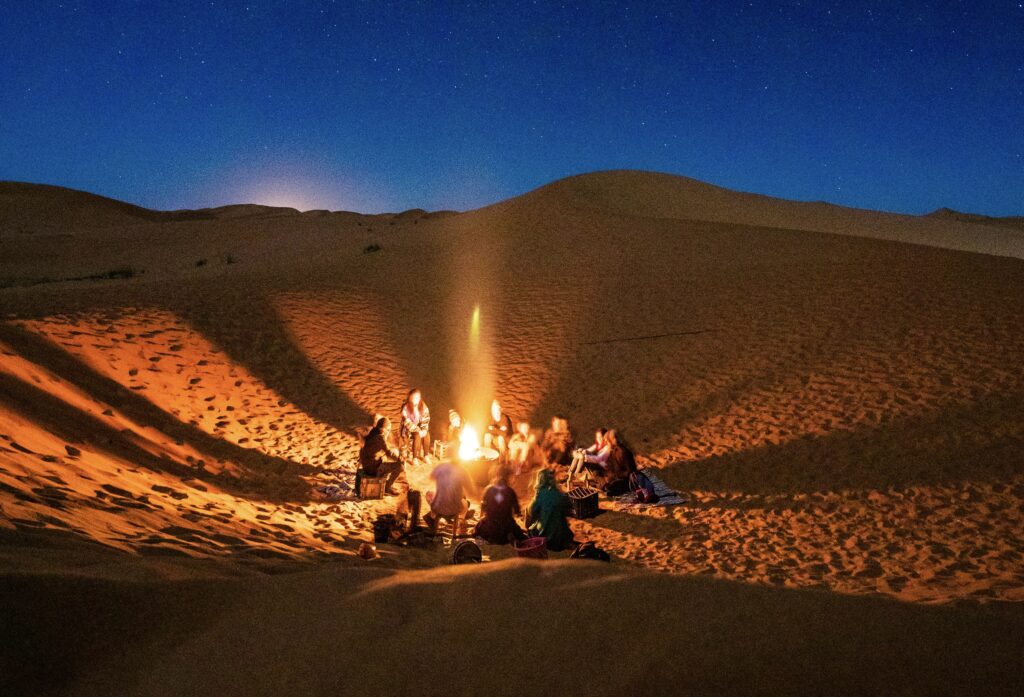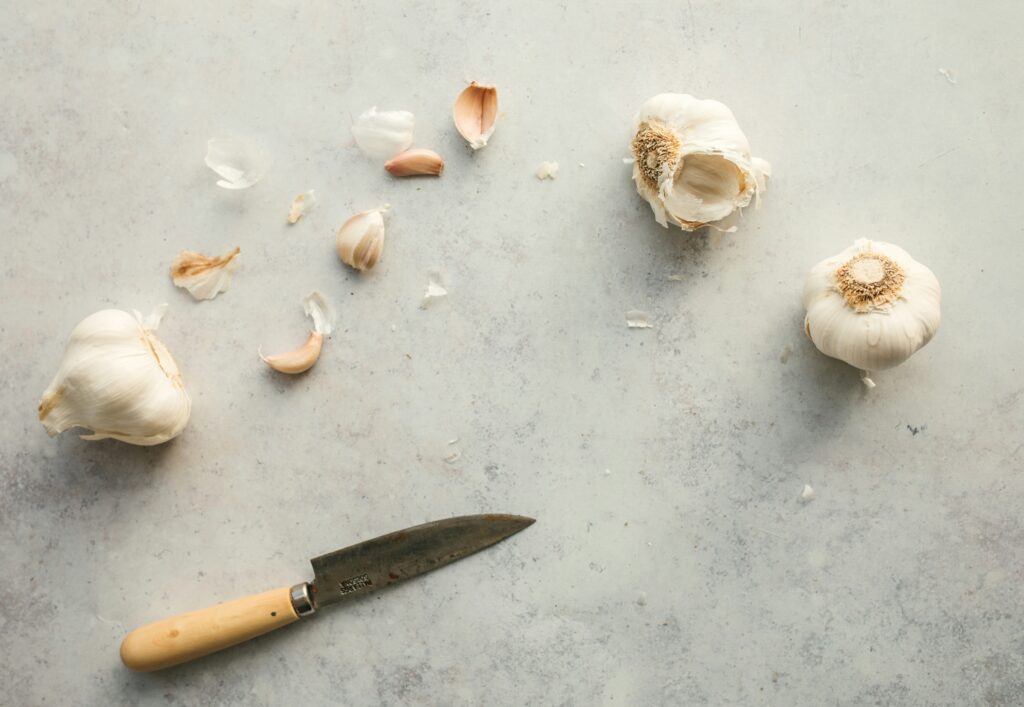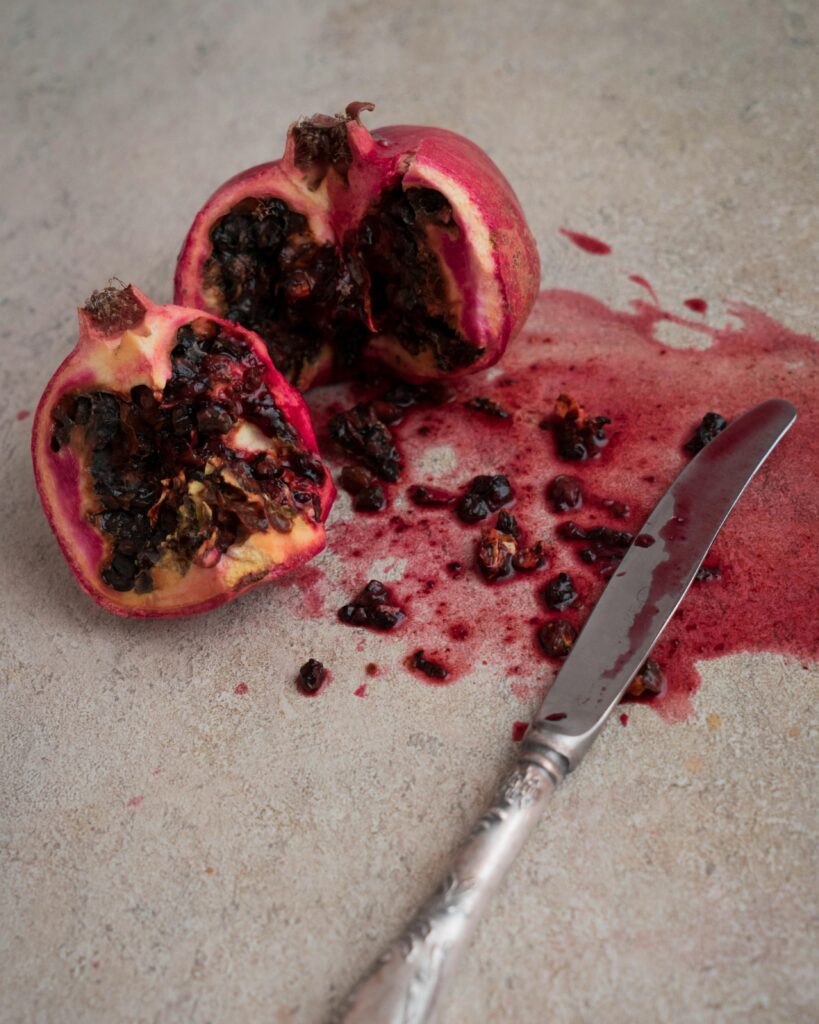Welcome to the first edition of Cozy Questions, a new column in which TIE Nonfiction Editor, Christine Ro, interviews her best foodie friends! The only requirement? They each bring a dish that makes them feel cozy. This week, Christine brought a cheese Danish.
Claudia Langella and I met when we were both Literary Studies majors at The New School’s Lang College. I started sharing Trader Joe’s cookies with the class because why not? Claudia then started sharing her homemade cookies because she’s an angel.
At time of publication, Claudia is completing her Culinary Arts Associate Degree at Johnson & Wales University in Providence, Rhode Island. Over the summer, she will be interning at Newport Vineyards & Restaurant in Newport, Rhode Island.
Could you please introduce your cozy dish, and why you brought it?
It’s kind of boring. It’s just bread and butter, and I’ve been snacking on it all day. I was actually telling my boyfriend last night how I feel like my favorite foods are plain and boring. We were eating Carr’s Water Crackers, and I was like, “These taste so good!” But there’s no flavor to them, so I don’t know. I like a comforting, plain, boring meal sometimes.
My parents would always take me and my sister on an Easter break vacation when we were younger, so we would go to a different city, and I remember everything that I ate on those trips. Sourdough bread in San Francisco is one memory that I have. Muffuletta sandwiches in New Orleans is another.
From there, it kind of followed me into middle school and high school, when I started baking a lot on the weekends. I’d bake every Friday night, and we’d all eat it for breakfast the next morning because it was usually some form of banana bread or scone or muffin. That’s kind of where food and cooking and baking made its way into my life. I enjoy cooking and doing something with my hands and seeing something from start to finish like a carrot become a soup.
That was a very plain example.
Oh my God, no, that was beautiful!
The last class that we had together was our undergrad capstone. Now, two years later, we’re both back in school. I know that in my classes, the ages range from 23 to 73, but I’m curious to know what your classes are like in culinary school. Is there a wide range of ages?
There’s not a huge age range. I think it’s maybe from like 18 to 26. Every now and then, you’ll see someone who’s a lot older, like maybe in their forties or fifties, who is going back to school, but the majority of the student population is people that just graduated high school because Johnson & Wales is the place to go if you want a normal college experience.
I will say that it’s cool to meet people who feel the same way about food that I do, and also are that young. A lot of the people who I’ve befriended did culinary programs at their high school. Not everyone that does that chooses to stay in culinary, so the kids that do really love it and know that it’s what they want to do for the rest of their lives.
Their passion inspires you.
Definitely.
What kind of things do you learn in culinary school? Is it possible to go in as a beginner, or do they expect you to have some basic knowledge?
I think most people do have basic knowledge of cooking because it’s such a niche thing that you choose to do. I have one friend who just graduated high school last year, and he just thought that culinary school sounded fun. He had never worked in a kitchen. He would sometimes cook for his parents at home, but he kind of went in blind because he just didn’t know a lot. He’s doing well. He likes it. I think either way, everyone needs to have an open mind.
There are things that you learn in your first semester that you might know already like the basic knife skills. Maybe you know how to make soup. The first semester is definitely a lot of recipe-following and learning different herbs and the mother sauces, which are like five classic French sauces that turn into different things, so you have to know the basic ratios for those. Once you move into your second semester, you start doing baking and more international cuisine like the basics of French cuisine, which is what culinary schools around the globe are kind of based off of.
This past semester, I did baking, and I like baking, but I feel like in the way that The New School is divided between Parsons and Lang, culinary school is divided by culinary kids and baking kids. The cooking classes that I’m in every day are six hours long, so I’m with the same people for 24 hours of the week, and I’m not really seeing the baking kids. Another class that you do in your second semester is your front-of-house, so we’d have a uniform and serve people and learn etiquette, which I really liked because my restaurant experience is front-of-house. Other stuff that we learned includes breaking down different animal parts. We have to break down a chicken for one of our finals.
By the end of my program, I’ll have to know how to create a menu. Once you move along in the program, you can take fine dining classes, casual concepts. You basically create an entire restaurant, and they have all these different dining rooms that those classes kind of transform. I won’t be doing that because I’m only in the associate’s program. The biggest goal of the associate’s program is to be able to create a menu, and also to be able to identify different international cuisines and their dishes and flavor profiles that go with them.
That covers the big stuff.
Your comparison of culinary and baking to Parsons and Lang is so funny. Which one would you say is Parsons?
I’m at the Parsons of this university. The things that I see, you can definitely tell all the money is poured into culinary because it’s the biggest program. There are the most kids, they have their own campus. I don’t know, it’s funny because I’m like, “This is what the Parsons building looks like in the classroom. Compared to tiny little Lang.”
This is probably a question that you get a lot, but I have to ask. Why did you decide to go to culinary school after undergrad? Who or what inspired you?
When I graduated from Lang, I knew that I wanted food to be in my life, and I ended up working for ten months at a catering company as an administrative assistant. I helped plan all the menus and catering rentals and stuff like that. It was cool to see ideas come to life like seeing a couple’s wedding inspiration turn into a full-blown, in-person event. I also got a few chances to work in the catering kitchen, and I really enjoyed the days that I was there.
I didn’t stay in catered events because it’s not, for lack of a better way of saying it, as romantic as being in a restaurant. Someone spent $50,000 for us to do all this work and set up a fake kitchen for something that was only going to last two hours. I learned a lot in that role, but it just wasn’t inspiring having to go into an office the next day and be on a computer most of the time.
I decided on culinary school because I didn’t want to have to spend so long in a restaurant, and I kind of wanted to just bite the bullet to learn everything in a shorter amount of time. Also, if I do decide to go work in a food magazine or another events company later on, I have this in my pocket that I can show as experience in this industry.
I guess the short answer is that I didn’t want to have to limit myself by just working in a restaurant, and I’m still in the process of figuring out if I want to do that.
When I try to imagine what it must be like to work in a restaurant, I just see Gordon Ramsay making the idiot sandwich. I trust that none of your professors are doing that?
Yeah, no. It’s interesting because I thought that it was going to be that way, too. I think it used to be that way, but once culinary schools became more traditional in the college sense, it became less strict. Also, the industry is changing. Chefs like that aren’t really admired as much as they used to be in the 2000’s because that wasn’t a safe workplace, and you definitely don’t want to be in a learning environment or working environment where someone is treating you like that.
It’s definitely not as scary as people make it seem or as people think it is.
That’s a relief!
Obviously, cooking is a big part of culinary school, especially cooking with other people. I’m curious to know if you cook a lot outside of class, and if you cook a lot with other people outside of class?
I cook dinner every night. Sometimes, it’s boring, and I don’t want to do it, and sometimes, I feel really inspired. I definitely make an effort to make something every day, and I feel like that’s something I would even do at Lang, even if it was making an omelet or something, just because I know that one. It’s how I express myself, and I feel like I express myself well.
I cook a lot alone, and even though I enjoy cooking with other people, it’s a whole different type of cooking when I’m cooking at home versus cooking in school. Sometimes, it’s fun to just make one really intricate meal for me and my boyfriend. Last night for dinner, I made these little tiny raviolis. It was a big job for one person to do for two people, but at school, having to do 100 little tiny raviolis in half an hour with only one other person and my professor helping me just a little bit is different. Not as much pressure when you’re cooking alone, and so I like that part.
I feel like I had this issue at the end of Lang where I wanted to enjoy the process of writing, but I didn’t want to make it my entire existence, and I used to tell myself that about cooking as well because I didn’t want it to become too much of a thing in my life. Now, I have a better balance of that. I have two different ways of cooking. I can come home and relax and make a certain dish, then go to school and do the hour-and-a-half prep and hour-and-a-half service portion of it.
When you’re inspired, do you get inspired by something that you made earlier that day at school, or at random?
I think definitely another thing that I’ve learned is that you have to inspire yourself. Some weekends, I’ll come home and cook something I made in class, and other weeks, I want nothing to do with that, so I’m going to find inspiration elsewhere in a cookbook or a cooking show or Instagram. There’s only so much fun you can have in all these basic classes, and I feel like once you reach the second half of your class, then you start getting into the portion of the class where you create something instead of your chef telling you, “Okay, this is what you guys are going to make today. It has to be just like this, no substitution, no creative stuff.”
There was one class where all we did was braised chicken, or fried chicken, and everyone was sick of chicken. In my breakfast and lunch cafe class, there was one week where all we did was eggs, and we all had to make these different fried eggs, scrambled eggs, omelets. In the beginning of the week, we were all like, “Great! We don’t have to eat breakfast because we can just sit off to the side and eat whatever egg we made!” By the end of the week, everyone was like, “We hate eggs. We cannot eat any more eggs. We cannot make any more eggs.”
It’s the repetition that can get uninspiring.
I can’t imagine eating eggs everyday for a week. Or chicken.
I know! It sucks! I have to eat fried chicken everyday! Oh no!
American chef Thomas Keller said, “Food should be fun.” What would you say is the most fun part about food?
Oh my God. Okay. I think I have two answers.
The first answer, the most fun part about culinary school is getting to have access to all these ingredients and all this equipment that I’ve never had access to before because I’ve never worked in a kitchen. Huge industrial kitchen aids. Pasta machines. A full range of stoves and ovens and stuff like that. Just getting to flex those muscles everyday has been really fun in school, and it’s nice to have access to weird ingredients that I’ve heard of before but never seen or worked with, like different peppers and stuff, learning about how many different peppers there are and how many different ways to use them, and stuff like that.
Part two, the most fun part about food, I think connecting with people over food is always important. Even like this, food is how we’re connecting right now. I know that I want to keep working in a community of some sort, or build a community around food. I imagine a supper club or something would be fun to be a part of, and I just love learning or teaching someone else about a different ingredient or dish that they’ve never heard of before.
I guess this is a whole different question now, but I feel like there’s so much you can say about going out to eat or even just cooking for others, but at the end of the day, it is what inspires so many relationships. Whether you have the $2 taco or the four-course tasting menu, you still have a similar thing going on if you’re enjoying it with another person. That is what drives me. I’m thinking a lot about what my mission is as a cook once I graduate, and I definitely want people to be in the center.
That’s amazing!
Okay, so my last question is actually five questions.
Okay. I’m ready. Hit me.
If you could open a restaurant anywhere in the world, where would it be?
I guess the broad answer is somewhere that has access to a lot of farms. Good farms, and makers and artisans that we could source from, and also somewhere that is anchored by its community, if that makes sense. Something that could be more than just a restaurant, like maybe an event space or a community gathering area, or something like that. Somewhere that needs a place like that.
What would the seating be like?
There’s a place in Brooklyn called Dinner Party, and they’re basically a restaurant and a supper club. They have one menu that you pay one price for, and you just take a seat wherever, and you don’t need to come with people, which I think is really cool. I think it would be cool to have a place like that where you encourage people to sit with people that they don’t know and build a connection with over food.
There’s also the part of me that likes the traditional, strict four different sections, and there’s a captain in each section, so maybe there would be a mix of both. You can have the option to sit with strangers, and not just at a bar, but sit at a table and face a stranger, and then also smaller tables for smaller parties.
What would the best-selling food be?
When I’m out to eat, and I see something on the menu where I’m like, “Oh, I have to order that,” I always like to order a chicken dish, and my boyfriend loves chicken, so sometimes, we’ll get half a chicken if that’s on the menu, and we’ll split that.
My comfort food is chicken, rice, vegetables, and a sauce. That’s my comfort go-to dinner. Maybe I should have made that if we were having a dinner conversation.
I love that. Very simple but filling.
What would the best-selling drink be?
I love lemonade. A really good lemonade always hits the spot. If I’m in the mood for a lemonade, I will order it if I see it on the menu.
And that goes so well with the chicken and rice. It’s refreshing.
Yes!
Last but not least… What would the restaurant’s name be?
I don’t know. I think about this, and it’s kind of like how I’m sure people think about what their firstborn child is going to be named.
I thought you were going to say, “First book title.” Firstborn child, though? That is huge! That is generational!
You know what I mean? It’s similar to an author thinking about the title of their book, like what if that becomes the thing that you’re known for, you know? It needs to be a good name, and it also depends on what you’re serving, and where you are.
I don’t have one. I think about it, but I don’t have one because it’s like what’s the point, I don’t even know what I’m going to be doing, you know? That’s a big question.
Claudia Langella graduated from Lang’s Literary Studies program in 2022. A lifelong eater, her experience in New York’s hospitality industry is what made her pursue food full-time. She currently attends Johnson & Wales University in Providence, Rhode Island. Her writing is almost always about food. Find her work at www.claudialangella.substack.com.
Christine Ro is a first-year Nonfiction student in the Creative Writing program at The New School and the nonfiction editor at The Inquisitive Eater. She loves to write humor essays, watch foreign films, and try anything but coffee at coffee shops. Some of her work can be found at The New School Free Press and The Inquisitive Eater.



